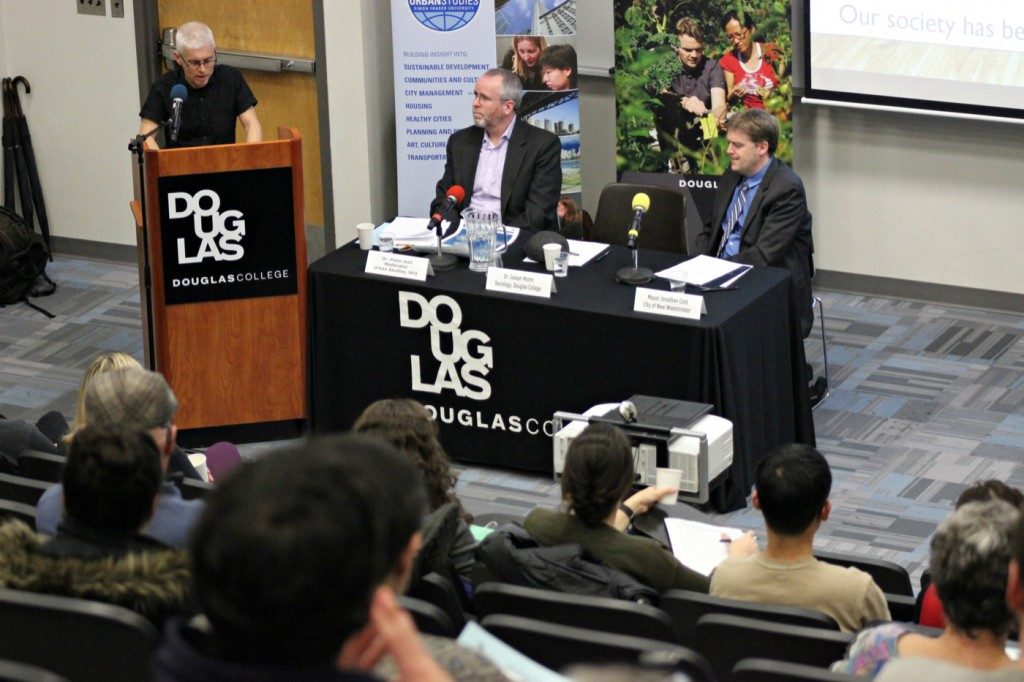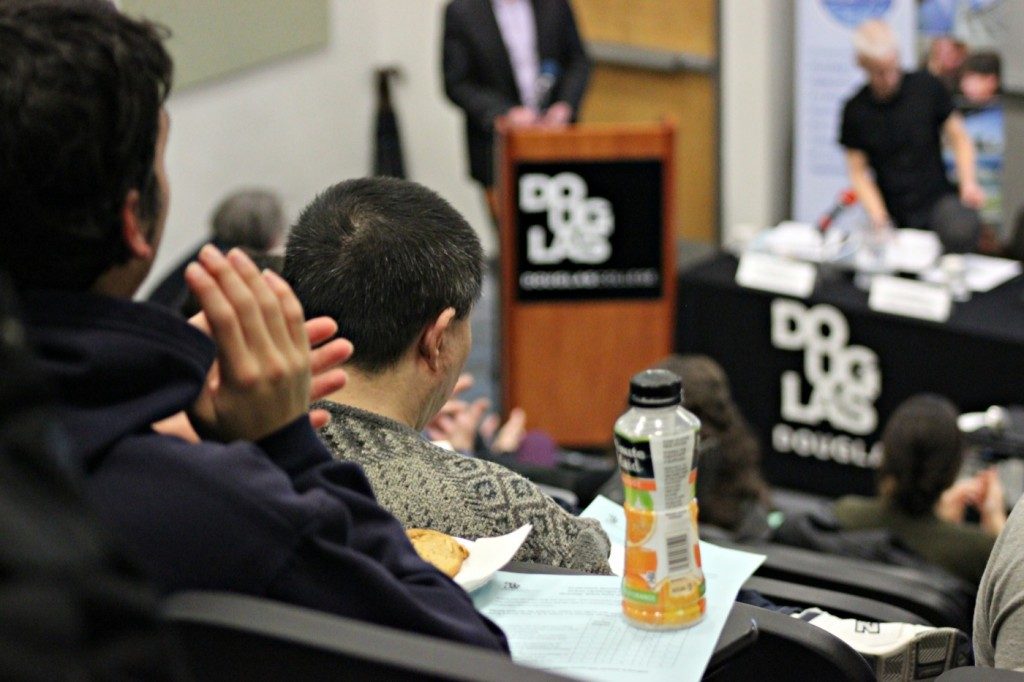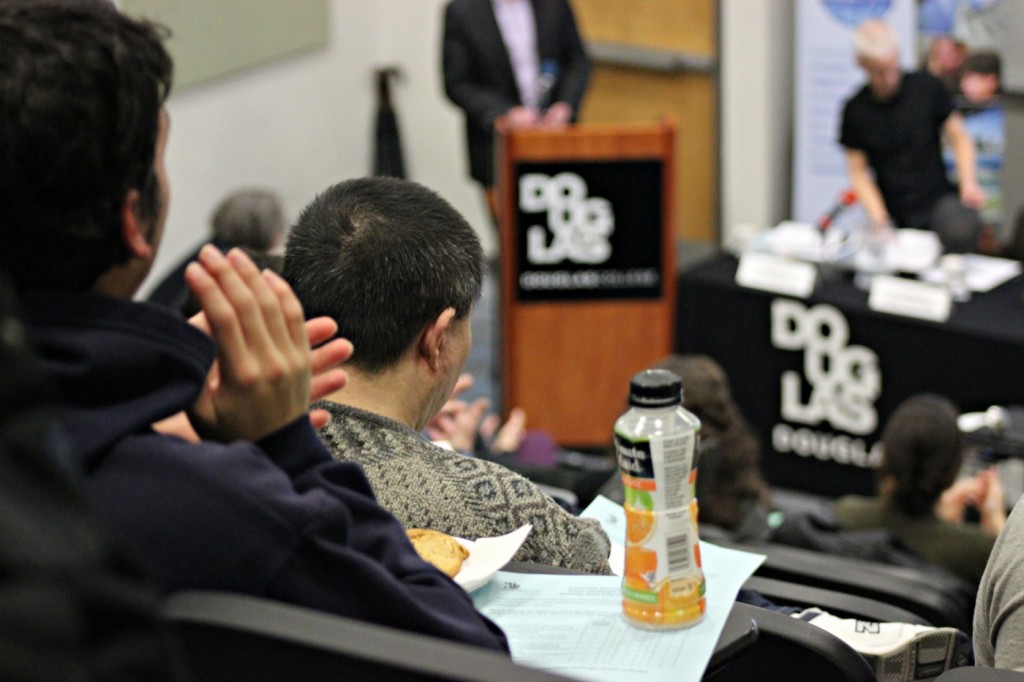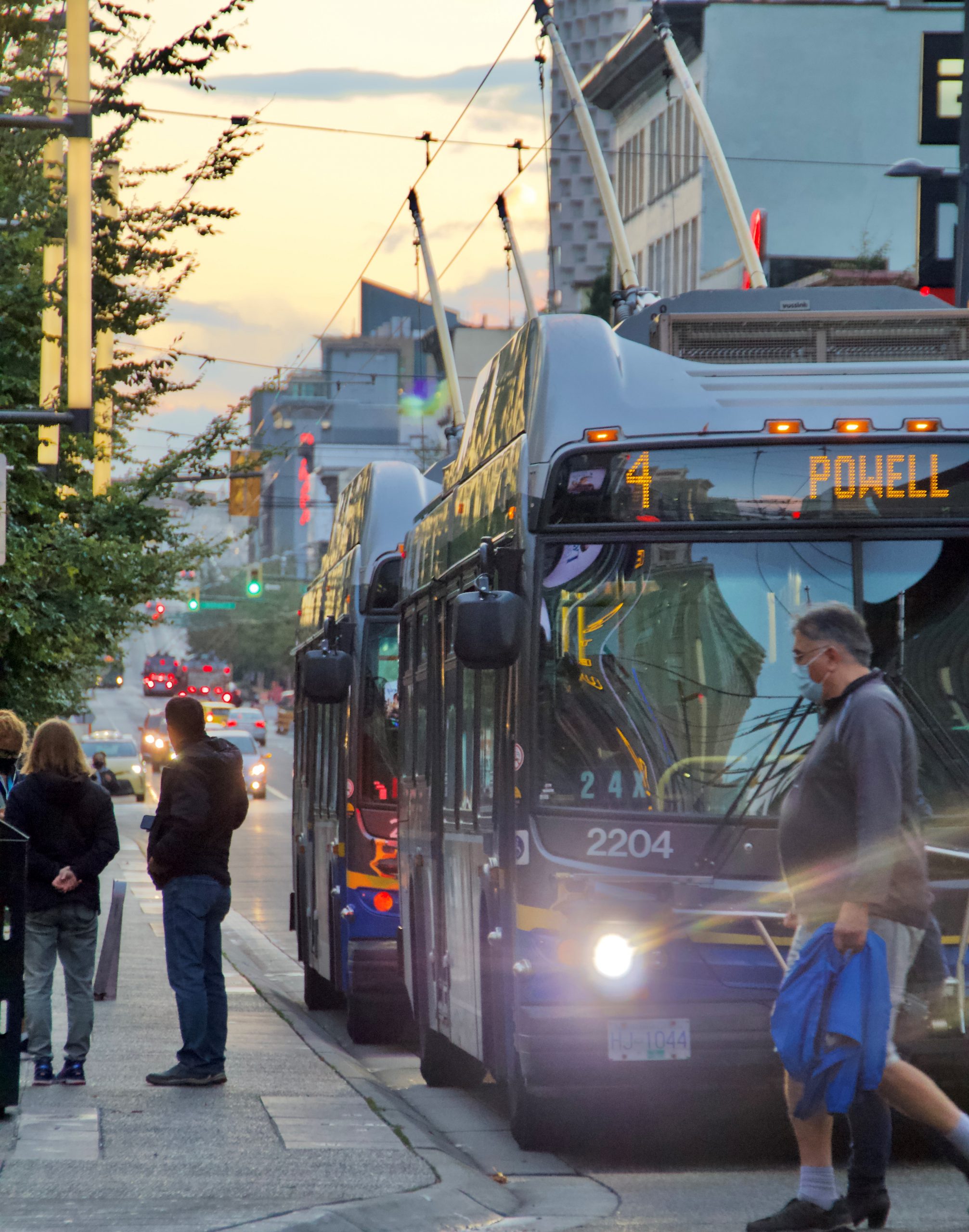
Public forum offers insight and solutions to homelessness crisis
By Jessica Berget, Staff Writer
On March 9, Douglas hosted “Urban Challenges,” a public forum concerning the rise of homelessness in the Lower Mainland. The event was presented by Urban Challenges, with Douglas College, Simon Fraser University, and the City of New Westminster.
The forum was led by Dr. Joseph Moore, Faculty of Humanities and Social Sciences at Douglas College, followed by New Westminster mayor Jonathan Cote, with the discussion moderated by Dr. Peter Hall, Director of the Urban Studies program at SFU.
Moore framed his presentation on the homelessness crisis by considering the sociological factors that contribute to the issue.
“If our goal is to end homelessness, then a sociological approach is urgently needed,” he said.
Moore also addressed the rise in the homeless population since the 1980s and acknowledged the importance of historical context. Moore pointed out that, to many, homelessness has been a part of their everyday lives, while some people of the older generation consider it a newer problem.
“It’s very hard to see the social context of homelessness when it’s just part of our everyday lives that we live and breathe—it’s all we have ever known,” he said. “There was a time in Canada when we didn’t have this crisis.”
Moore discussed why homelessness is a rising problem and the social and political factors that contribute to this crisis. In today’s society, housing is more of a commodity, he said, more something to buy and sell than a basic human right. He also addressed how and why this became an issue in the first place and what people can do to rectify it. The onus—as Dr. Moore mentions—may be on everyone.
“The collective income and wealth in Canada is significantly greater now than it was before this crisis began. We live in a richer society—and we also have people living on the streets. I want to make clear that we made political and economic decisions to make homelessness,” he said. “[All] of us live through the crisis and more or less have gone along with the situation—or at least we haven’t done enough to change it.”
Moore finished by specifying governmental factors that contribute to the homelessness crisis. Mass incarceration of people dealing with mental illness has stopped, but it is accompanied by another serious problem. Humane and effective treatment is not provided to communities suffering with mental health problems to the extent that it is needed. Minimum wage, adequate income assistance, unemployment insurance, welfare, and other social services have not risen with the price of today’s rental markets, making homelessness a larger risk to those who depend on these services.
“The solution to homelessness—it turns out—is homes. Of all the solutions out there, building homes for the un-housed is the cheapest and most expedient way not only to end homelessness, but simply to run a country and a city,” Moore said.

Mayor Cote then gave the next presentation, which focused both on the governmental factors in place that contribute to homelessness and the challenges of affordable housing. Cote said that too much attention is focused on the price of housing, and not enough on homelessness.
“We need to be putting our resources and time and efforts into solving issues of homelessness. In a country, in a province, and in a region as wealthy as our region, I think it is an absolute disgrace that we have the challenges of homelessness that we currently have.”
The mayor addressed the capital gains exemption, a $6-billion federal-housing program. Despite BC receiving the largest tax subsidy for housing, homeless individuals and renters with low to moderate incomes do not benefit. Rather, those who own more property receive these tax breaks.
“It drives me crazy when we talk about financial constraints […] when we want to talk about dealing with the most difficult housing situation,” said Cote. “We need resources for affordable housing all the way up the spectrum.
“If we had six billion dollars, I can guarantee you we would be pretty close to eliminating homelessness in the country of Canada.”
Cote also gave some sobering statistics about the political and social aspects that contribute to homelessness. Many homeless individuals who come out of foster care or correctional facilities have a history of mental or physical illness, have experienced trauma and abuse, suffer from addiction, are women, or are Indigenous. One homeless person costs the city $55,000 a year with the multiple institutions that deal with homelessness, while it only costs $37,000 a year to properly house and provide support to homeless individuals.
Cote finished his presentation by describing how New Westminster has addressed homelessness by putting housing institutions in place to aid those most at risk.



